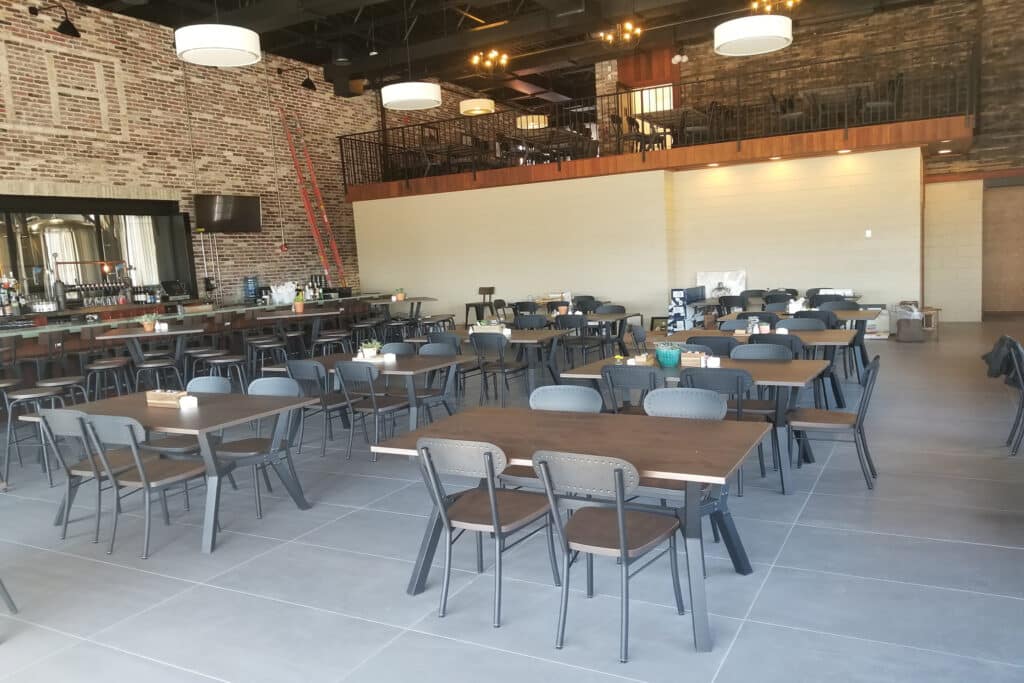The flooring in commercial kitchens is subject to some harsh daily punishment. It involves exposure to hot oil splatter and extreme temperature changes to continuously moist conditions, dropped metal pans, and ongoing cart and foot traffic. Commercial kitchens are usually restaurants kitchens so that you can look for the best commercial kitchen floor coating in NJ.
Additionally, commercial kitchens are a few of the most regulated industrial environments. Apart from that, the flooring is scrutinized timely by the health inspectors. If you want assistance with this critical facility decision, here are the top 5 considerations while you select the commercial kitchen flooring:
Hygiene support
If you want to maintain a hygienic, USDA-compliant environment, it must be the number one priority in every food facility. The reason must be not only because it is a primary focus to visit inspectors, but most importantly because a breach in the food safety protocol can seriously impact the health of guests and workers.
Unfortunately, many grouted and tiled flooring systems have creases, seams, and numerous places where the liquids and food particles can get stuck, inviting microbial proliferation. Once these substances get absorbed and embedded under and into the floor surface, it can become nearly impossible to eradicate mold and hidden germs, along with the development of telltale, unpleasant odors.
Cleanability vs. Slip resistance
Cooking oils, water spillage, and other liquids are frequent occurrences in commercial kitchens that create potential fall-and-slip hazards. At the same time, various types of floors on the market claim to have tout slip-resistance surfaces; just a few offer slip-inhibiting fully customized properties.
Floor maintenance routines may differ significantly from one facility to another for many reasons. It is based on the typical ingredients that might end up on the floors, along with preferred cleaning techniques and products. Flooring can be installed with customized slip resistance that helps commercial kitchen managers to select the perfect balance between good traction and the ability to clean their floor well, following their preferred method, whether pressure washer, steam cleaner, automatic scrubber, or bucket and mop.
Strength and chemical resistance
The commercial kitchen must withstand exposure to a wide varying range of substances. Broilers, fryers, and ovens can spew grease and hot oil onto the floor; pots of boiling liquids get spilled. Granular ingredients such as spices, salt, sugar, and whole-grain flour can serve as abrasives on the floor surface undercard and foot traffic. Knives, pans, dishes, and other kitchen equipment can be dropped onto the floor De-greasers, solvents, and harsh detergents may be ‘scrubbed in’ during daily cleaning.
Thermal Shock Resistance
The flooring in the commercial kitchen must be capable of surviving the wide and abrupt divergence in temperatures between walk-in coolers and cold freezers and the intense heat of cooker areas, dishwashing stations, steam cleaning, and hot spray washing. It causes contraction and expansion of both concrete and coating substrate. If the concrete slab and surface material react differently to the temperature changes, disbondment and shearing off the floor covering from the concrete can occur, creating moving/open areas of the flooring. In addition, it enables the contaminants to seep under the surface and into the slab.
It is better to select a flooring system that is thermal shock resistant to avoid these hazards. One that contracts and expands at a rate similar to the slab underneath helps ensure that the entire floor surface remains fully bonded to the concrete and helps circumvent the potential of growth of microbes between the flooring and the substrate.
Mitigation and Moisture Tolerance
These two are two general sources of moisture in any commercial kitchen. One source is from the activities in the room, meaning the humidity generated by the activity of liquid spills, cleanup, and dishwashing routines or cooking. Can cause wetness and condensation on the floor surface. The other source is a site conditional called ‘moisture vapor transmission, stemming either from the concrete or the soil underneath the slab. In both cases, moisture may cause premature deterioration of concrete substrate and floor covering.
Conclusion
Many commercial kitchen floor coverings in the market offer good benefits. If you make sure to consider all the five considerations for commercial kitchen flooring, you will end up with the best choice of concrete protection for both existing and new commercial kitchens.
If you are still unable to come to a decision, contact Transylvania Concrete Coatings today. The experts will give you the proper consultation on which floor coating could be the best for your kitchen flooring.

